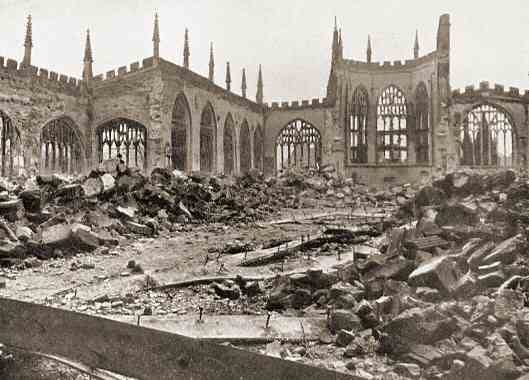Requiem aeternam dona eis, Domine; et lux perpetua luceat eis.
On 19th September, my partner Alan suddenly died.
I have no words for what happened that day. I could tell you how he died, but that is merely describing. The medically-minded and morbidly inclined might like to know he died of a pulmonary embolism caused by deep vein thrombosis. But that’s what happened to his body. What he felt as he died, and whether his fading consciousness was aware that this was the end, I will never know. He was already deeply unconscious - indeed, probably dead - by the time I found him. I hope Death claimed him quickly, and he did not suffer long.
As for me, I fell down a deep, dark hole.
Tremens factus sum ego, et timeo, dum discussio venerit, atque ventura ira
Quando cœli movendi sunt et terra.
I could not write. Even what I had already written made no sense to me. The words danced in front of my eyes, refusing to coalesce.
Even speaking was difficult. Words fled from me as I spoke. I developed a stutter.
Dies illa, dies iræ, calamitatis et miseriæ, dies magna et amara valde…
Six weeks on from that awful day, the words are no longer dancing, and I can speak and think coherently. But the black-brown-ochre darkness is still there. It has no name. I do not know if it will ever go.
The pain of death is felt briefly by the dying, but for much longer by the living. The myth of purgatory, the heart of the Requiem Mass in the Catholic rite, transfers the pain of the living to the dead. They must suffer, because we suffer. When our pain is healed, they can rest in peace. When our darkness lifts, eternal light will shine on them. Lux perpetua luceat eis…
Last week, I sang Benjamin' Britten’s War Requiem in Westminster Cathedral with the Bach Choir.
Britten’s Requiem combines the Latin words of the Requiem Mass with the poetry of Wilfred Owen to create a powerful anti-war protest. Written as reparation for the horrors of World War 2, it was first performed in the new Coventry Cathedral, which was built to replace the ancient Cathedral destroyed by the Luftwaffe. The ruins bear an eerie resemblance to other, more recent, places destroyed by bombs. Dies irae, dies illa, solvet saeclum in favilla…
The War Requiem starts conventionally enough. “Requiem aeternam dona eis, Domine…” whispers the choir as the bells ring. “Eternal rest grant unto them, O Lord…”
But the tenor responds with an angry outburst:
“What passing bells for those who die as cattle?
Only the monstrous anger of the guns.
Only the stuttering rifles' rapid rattle
Can patter out their hasty orisons
No mockeries for them from prayers or bells,
Nor any voice of mourning save the choirs, --
The shrill, demented choirs of wailing shells;
And bugles calling for them from sad shires.”
Wilfred Owen’s poem is about the young men mown down by guns and shells on the fields of Flanders,a century ago. But “die like cattle” also brings to mind another, more recent horror. There is more than one way of killing people by the thousand, and not all die in battle.
Today, people are being slaughtered like cattle on the killing fields of Gaza and Lebanon. The noise of the guns and shells is as horrifying now as it was to Wilfred Owen. But the bugles have given way to drones, hunting people down from dangerous skies.
Alan did not die in battle. He was not blown to pieces by a shell - though another member of my family was. He was not shot by a sniper, or beaten to death in a torture camp. And he was not young. He died because his body was no longer able to sustain life. He died because it was his time to die.
But far too many people are dying long before their time, and not from natural causes. Alan was as horrified as I am by the images coming out of Gaza, though fortunately he did not live to see the extension of the war to Lebanon or the extermination in north Gaza. Bodies lying dismembered in the streets and lifeless on hospital floors. Mothers cradling the bodies of their slain children. A father stroking his son’s face for one last time before the shroud is closed forever.
Sed signifer sanctus Michael repraesentet eas in lucem sanctam:
Quam olim Abrahae promisisti, et semini ejus.
In Wilfred Owen’s cynical rewriting of the Biblical story of Abraham and Isaac, Abraham sets out to offer his son Isaac as a burnt offering to the Lord. When he has built the fire, he ties his son to the pyre and lifts the knife to kill him. But the angel of the Lord intervenes, saying:
“Lay not thy hand upon the boy,
Neither do anything to him. Behold,
A ram, caught in a thicket by its horns;
Offer the Ram of Pride instead of him.”
In the Bible, Abraham obeys. But not in Owen’s harsher reading:
“But the old man would not so, but slew his son,
And half the seed of Europe, one by one.”
Today, it is not the seed of Europe that the old man is slaying, but the children of the Middle East. The brutality of the Old Testament is brought to life anew in the place of its birth. And it is not one son sacrificed at the behest of a cruel God, but two. Abraham is killing both his sons.
Libera me, Domine, de morte aeterna,
in die illa tremenda:
Quando coeli movendi sunt et terra:
Dum veneris judicare saeculum per ignem.
“Deliver me, Lord, from eternal death, on that awful day: when the heavens and the earth are moved, and you come to judge the earth with fire…”
These words describe the Day of Judgement. But do they not also describe a war zone? And what are wars about, if not judgement? War is ordeal by combat and fire. Abraham tells his sons to fight each other to prove who is more worthy to be called his son and inherit his lands. The old men who send their children out to die pass judgement on each other. The victors enter the New Jerusalem: the losers are cast into the outer darkness.
Britten’s shattering “Libera me” is the cry of all oppressed people, everywhere. And it fades out in the same way as Elgar’s oppressed demons. The dream of liberation dissolves, leaving nothing but darkness and suffering. There is no hope. Kyrie eleison.
But there is another way. Abraham sacrifices his sons by turning them against each other; but the sons do not have to do his bidding. They can recognise each other as members of the same family, and choose not to kill each other. The Ram of Pride is still there in its thicket, waiting to be offered in their place.
“Let us sleep now,” say the tenor and baritone: enemies yesterday, one dead at the hand of the other, now united in friendship. Peace comes when we recognise our common humanity and repent for the terrible things we have done to each other.
Pie Jesu, Domine, dona eis requiem.
November 2nd is the feast of All Souls, when Christians remember those who have died. Alan was remembered by name in the Commemoration of the Faithful Departed at Rochester Cathedral, accompanied by the gentle humanity of Faure’s Requiem. So too were my niece Annie, who lost her battle against the demons of the mind in November 2018, and my parents Frank and Joy Cooke.
Next weekend, the people of the UK will remember those who died in the wars of the 20th century. Sadly, many Remembrance services focus only on those who fell in battle. Some are tawdry, distasteful celebrations of armed force.
But many of those who die in war are civilians. And many of those who survive suffer life-changing injuries and mental trauma, or are rendered homeless and destitute. Surely, we should remember all those who suffer in the devastation of war, rather than celebrating those who inflict it?
The list of those known to have died on the killing fields of Gaza and Lebanon is too long to read, and there are many more whose names are not recorded. But God knows them all by name. We should remember them, not as numbers, but as people whose lives were cruelly cut short and whose loved ones are suffering grief and pain on an unimaginable scale.
And we should pray for peace, and light, and rest for the living, not the dead. For when the living are at peace, the dead can rest in peace.
In paridisum deducant te Angeli;
in tuo adventu suscipiant te Martyres,
et perducant te in civitatem sanctam
Jerusalem. Chorus Angelorum te suscipiat,
et cum Lazaro quondam paupere aeternam
habeas requiem.
Requiescant in pace. Amen.
Related reading:






My condolences …. I am so sorry for your loss
So sorry to hear this news. My condolences on your loss, and many thanks for your powerful and moving piece.